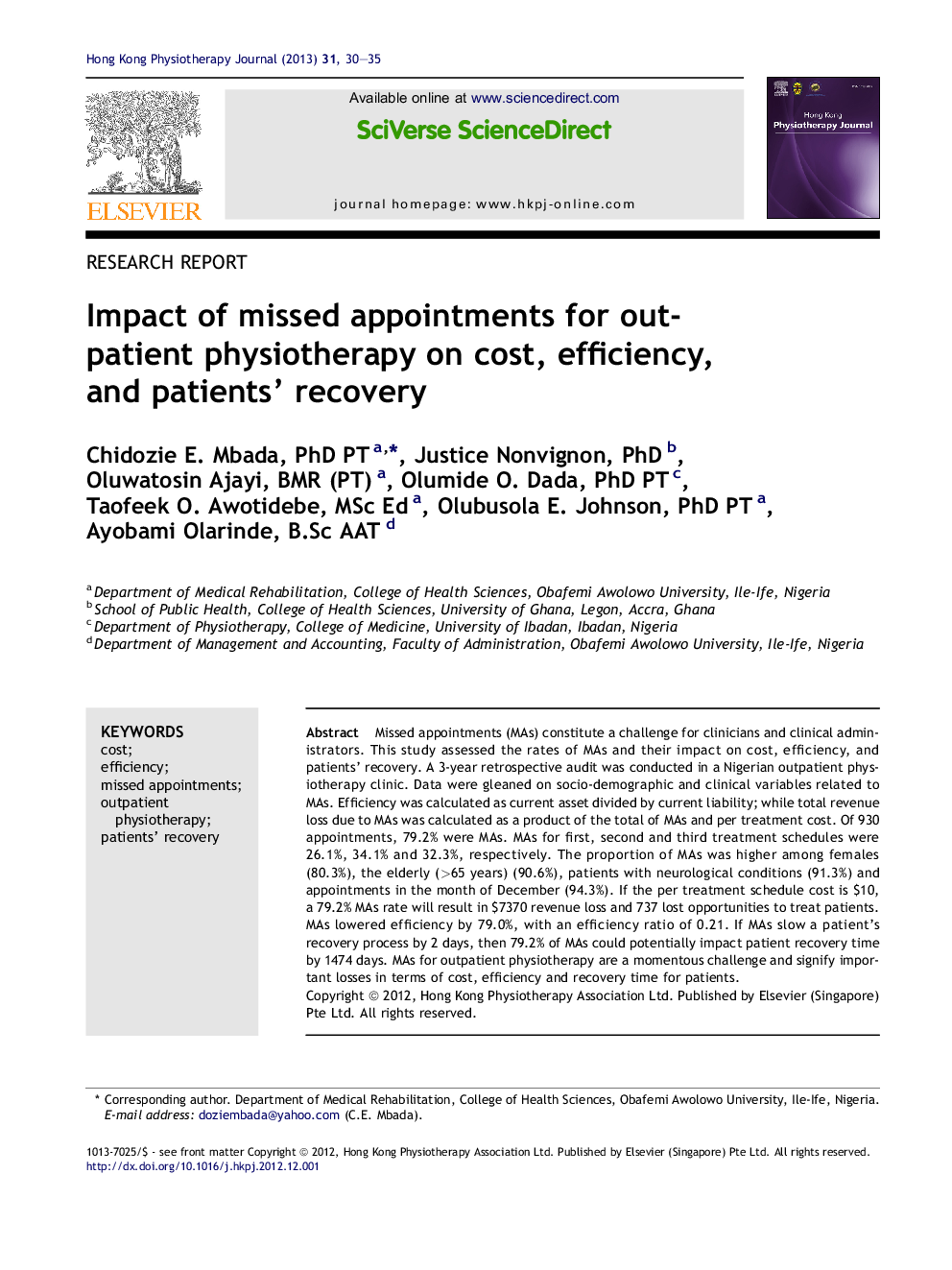| Article ID | Journal | Published Year | Pages | File Type |
|---|---|---|---|---|
| 2618417 | Hong Kong Physiotherapy Journal | 2013 | 6 Pages |
Missed appointments (MAs) constitute a challenge for clinicians and clinical administrators. This study assessed the rates of MAs and their impact on cost, efficiency, and patients' recovery. A 3-year retrospective audit was conducted in a Nigerian outpatient physiotherapy clinic. Data were gleaned on socio-demographic and clinical variables related to MAs. Efficiency was calculated as current asset divided by current liability; while total revenue loss due to MAs was calculated as a product of the total of MAs and per treatment cost. Of 930 appointments, 79.2% were MAs. MAs for first, second and third treatment schedules were 26.1%, 34.1% and 32.3%, respectively. The proportion of MAs was higher among females (80.3%), the elderly (>65 years) (90.6%), patients with neurological conditions (91.3%) and appointments in the month of December (94.3%). If the per treatment schedule cost is $10, a 79.2% MAs rate will result in $7370 revenue loss and 737 lost opportunities to treat patients. MAs lowered efficiency by 79.0%, with an efficiency ratio of 0.21. If MAs slow a patient's recovery process by 2 days, then 79.2% of MAs could potentially impact patient recovery time by 1474 days. MAs for outpatient physiotherapy are a momentous challenge and signify important losses in terms of cost, efficiency and recovery time for patients.
